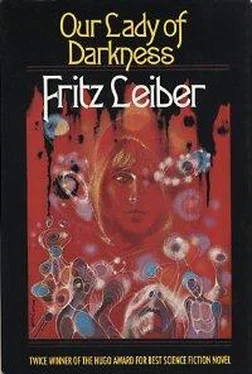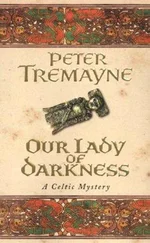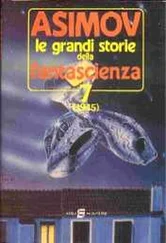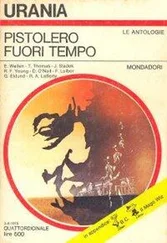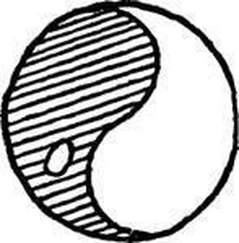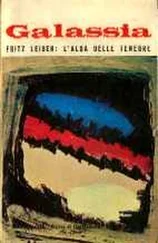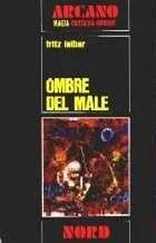At that moment he began to hear a very faint scuffing in the wall, like that of a very large rat trying very hard to be quiet. From how far did it come? He couldn’t tell. What were the first sounds of an earthquake like?—the ones only the horses and dogs can hear. There came a louder scuff, then nothing more.
He remembered the relief he’d felt when cancer had lobotomized Daisy’s brain and she had reached the presumably unfeeling vegetable stage (“the flat effect,” neurologists called it as if the soaring house of mind became a lightless and low-ceilinged apartment complex) and the need to keep himself anesthetized with alcohol had become a shade less pressing.
The light behind his head arced brightly greenish-white, fluttered, and went out. He started to sit up, but barely lifted a finger. The darkness in the room took forms like the Black Pictures of witchcraft, crowd-stupefying marvels, and Olympian horrors which Goya had painted for himself alone in his old age, a very proper way to decorate a home. His lifted finger vaguely moved toward Fernando’s blacked-out star, then dropped back. A small sob formed and faded in his throat. He snuggled close to his Scholar’s Mistress, his fingers touching her Lovecraftian shoulder. He thought of how she was the only real person that he had. Darkness and sleep closed on him without a sound.
Time passed.
Franz dreamed of utter darkness and of a great, white, crackling, ripping noise, as of endless sheets of newsprint being crumpled and dozens of books being torn across at once and their stiff covers cracked and crushed—a paper pandemonium.
But perhaps there was no mighty noise (only the sound of Time clearing her throat), for he next thought he woke very tranquilly into two rooms: this with the this-in-dream superimposed. He tried to make them come together. Daisy was lying peacefully beside him. Both he and she were very, very happy. They had talked last night and all was very well. Her slim, silken dry fingers touched his cheek and neck.
With a cold plunge of feelings, the suspicion came to him that she was dead. The touching fingers moved reassuringly. There seemed to be almost too many of them. No, Daisy was not dead, but she was very sick. She was alive, but in the vegetable stage, mercifully tranquilized by her malignancy. Horrible, yet it was still a comfort to lie beside her. Like Cal, she was so young, even in this half-death. Her fingers were so very slim and silken dry, so very strong and many, all starting to grip tightly—they were not fingers but wiry black vines rooted inside her skull, growing in profusion out of her cavernous orbits, gushing luxuriantly out of the triangular hole between the nasal and the vomer bones, twining in tendrils from under her upper teeth so white, pushing insidiously and insistently, like grass from a sidewalk crack, out of her pale brown cranium, bursting apart the squamous, sagittal, and coronal sutures.
Franz sat up with a convulsive start, gagging on his feelings, his heart pounding, cold sweat breaking from his forehead.
Moonlight was pouring in the casement window, making a long coffin-size pool upon the carpeted floor beyond the coffee table, throwing the rest of the room into darker shadow by contrast.
He was fully clothed; his feet ached in his shoes.
He realized with enormous gratitude that he was truly awake at last, that Daisy and the vegetative horror that had destroyed her were both gone, vanished far swifter than smoke.
He found himself acutely aware of all the space around him: the cool air against his face and hands, the eight chief corners of his room, the slot outside the window shooting down six floors between this building and the next to basement level, the seventh floor and roof above, the hall on the other side of the wall beyond the head of his bed, the broom closet on the other side of the wall beside him that held Daisy’s picture and Fernando’s star, and the airshaft beyond the broom closet.
And all his other sensations and all his thoughts seemed equally vivid and pristine. He told himself he had his morning mind again, all rinsed by sleep, fresh as sea air. How wonderful! He’d slept the whole night through (Had Cal and the boys knocked softly at his door and gone smiling and shrugging away?) and now waking an hour or so before dawn, just as the long astronomical twilight began, simply because he’d gone to sleep so early. Had Byers slept as well?—he doubted that, even with his skinny-slim, decadent soporifics.
But then he realized that the moonlight still was streaming in, as it had started to do before he slept, proving that he’d only been asleep an hour or less.
His skin quivered a little, and the muscles of his legs grew tense, his whole body quickened as if in anticipation of… he didn’t know what.
He felt a paralyzing touch on the back of his neck. Then the narrow, prickly dry vines (it felt—though they were fewer now) moved with a faint rustle through his lifted hairs past his ear to his right cheek and jaw. They were growing out of the wall… no… they were not vines, they were the fingers of the narrow right hand of his Scholar’s Mistress, who had sat up naked beside him, a tall, pale shape unfeatured in the smudging gloom. She had an aristocratically small, narrow face and head (black hair?), a long neck, imperially wide shoulders, an elegant, Empire-high waist, slender hips, and long, long legs—very much the shape of the skeletal steel TV tower, a far slenderer Orion (with Rigel serving as a foot instead of knee).
The fingers on her right arm that was snaked around his neck now crept across his cheek and toward his lips, while she turned and leaned her face a little toward his. It was still featureless against the darkness, yet the question rose unbidden in his mind whether it was just such an intense look that the witch Asenath (Waite) Derby would have turned upon her husband Edward Derby when they were in bed, with old Ephraim Waite (Thibaut de Castries?) peering with her from her hypnotic eyes.
She leaned her face closer still, the fingers of her right hand crept softly yet intrusively upward toward his nostrils and eye, while out of the gloom at her left side her other hand came weaving on its serpent-slender arm toward his face. All her movements and postures were elegant and beautiful.
Shrinking away violently, he threw up his own left hand protectively and with a convulsive thrust of his right arm and of his legs against the mattress, he heaved his body across the coffee table, oversetting it and carrying all its heaped contents clattering and thudding and clashing (the glasses and bottle and binoculars) and cascading with him to the floor beyond, where (having turned over completely) he lay in the edge of the pool of moonlight, except for his head, which was in the shadow between it and the door. In turning over, his face had come close to the big ashtray as it was oversetting and to the gushing kirschwasser bottle and he had gotten whiffs of stinking tobacco tar and stinging, bitter alcohol. He felt the hard shapes of chessmen under him. He was staring back wildly at the bed he’d quitted and for the moment he saw only darkness.
Then out of the darkness there lifted up, but not very high, the long, pale shape of his Scholar’s Mistress. She seemed to look about her like a mongoose or weasel, her small head dipping this way and that on its slender neck; then with a nerve-racking dry rustling sound she came writhing and scuttling swiftly after him across the low table and all its scattered and disordered stuff, her long-fingered hands reaching out far ahead of her on their wiry pale arms. Even as he started to try to get to his feet, they closed upon his shoulder and side with a fearfully strong grip and there flashed instantaneously across his mind a remembered line of poetry—“Ghosts are we, but with skeletons of steel.”
Читать дальше
